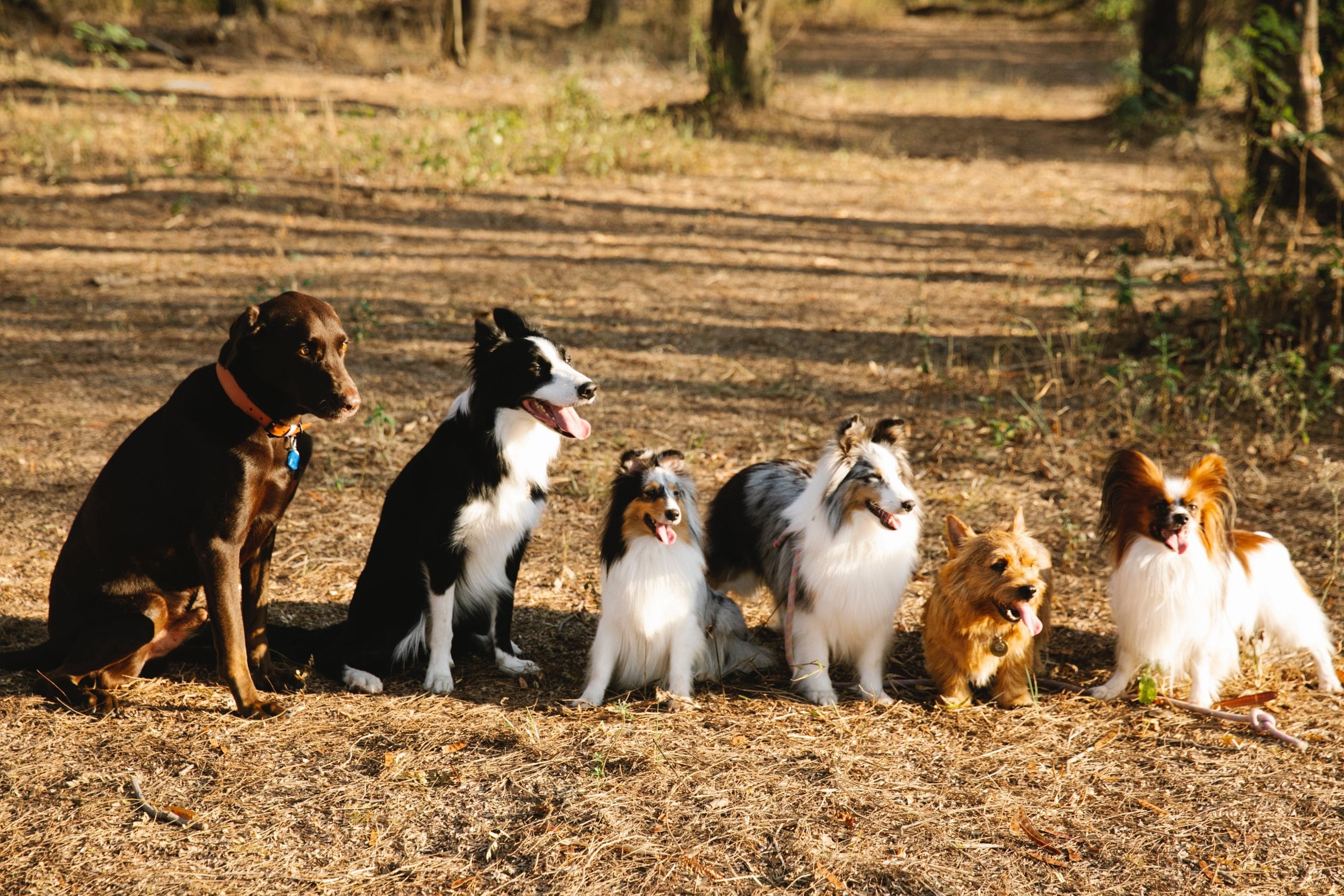Should your dog go paleo?
Let’s take a look at the science behind breed specific dog food.
Many popular dog food brands are marketed toward the idea that your dog is a modern-day wolf (and should be eating like one). But this concept is a little hard to swallow when you look over at your snoring pug. She looks more like a potato.
Enter: breed-specific dog food.
While it is true that dry kibble is not the best option for your dog, there’s no one common diet that’s best for all dogs around the world.
Multiple Breeds, Multiple Diets
Dogs have been “man’s best friend” for the last 12,000 years. Over time, humans domesticated these wild canines, breeding generation after generation of puppies until we got the faithful companions we know and love today.
But these “proto-dogs” bore little resemblance to modern-day breeds. Humans continued to selectively breed dogs for specific purposes, such as hunting, chasing away rodents, and guarding children. By selecting puppies with the most “favorable” traits, we now have hundreds of breeds.
And for most of our shared history, dogs around the world weren’t eating a single, common diet of commercially processed kibble—they ate what their human companions ate (commercial dog food wasn’t even invented until 1860!), which varied from region to region.
Because of this wide range of diets, many people are turning to breed-specific dog food to give their dog the best chance at optimal health.
Why Choose Breed Specific Dog Food?
The concept behind the “ancestral diet” is that dogs reach their best levels of health when they eat the same diet they did when the breed was first developed.
For example, the Siberian Husky was developed because humans in that area needed a dog that could pull loads over long distances while withstanding freezing temperatures. This area is covered with snow most of the year, so it didn’t make sense to feed precious grain stores to the dogs.
As a result, the Siberian Husky was bred to thrive on what was plentiful, such as salmon. These dogs have a much lower need for carbohydrates and require a relatively higher amount of fatty acids.
Contrast this with the Siberian Husky’s polar opposite: the Chihuahua.
Developed in Mexico, the Chihuahua would have been bred on a very different diet than its cousins in the north. Common ingredients would have included things like avocado, wild boar, and poultry. Archaeologists think that ancient Chihuahuas would have had a much longer lifespan than their modern-day counterparts, probably due to their diet. And this isn’t the only breed whose health relies on the right nutrients.
For example, Beagles burn calories from carbohydrates at an incredible rate but are unable to store this energy to use later. A diet that is low in carbs will cause their bodies to burn protein instead, which can cause muscle cramps.
Feeding your dog breed-specific dog food can prevent or alleviate many of these issues.
How Specific Should I Go?
Fortunately, you don’t have to source out reindeer meat just because you have an American Eskimo. At Rick’s, we’ve developed a menu that caters to most dogs’ needs.
Our four Signature Meals have something for every breed. While we don’t market them “Golden Retriever” or “Pit Bull” food, you’ll find that our Signature line has options that are beneficial to any breed. (We also have an extended selection of products available at Woofgang Bakery locations.)
For dogs with health concerns, we also have a line of Therapeutic meals and—if you’d prefer a more personalized approach—we can formulate a custom diet just for your dog.
How to Find Breed Specific Dog Food
When it comes to dog food (or any food really), less is more.
Don’t be swayed by deceptive food labeling or flummoxed by confusing ingredient lists. We recommend looking at the first five ingredients and paying attention to the quality of the food. Most commercially processed food is full of fillers, preservatives, and even toxins.
And remember, throughout human history, dogs ate what we ate. And humans rarely ate raw or grain-free diets. These ingredients are just fine for dogs!
Check out our blog for guidance on the most popular breeds of small, medium, and large dogs.
Conclusion
There’s a lot of factors that play into your dog’s nutritional needs. At Rick’s Dog Deli, we’ve taken all of it into consideration to create a meal that has your pet’s optimal health and wellness in mind.
We start with only USDA-inspected ingredients, which are gently cooked and quick frozen to lock in the nutrients and the flavor. Plus, all of our diets are vet-approved, so you can rest assured that your dog is getting the best nutrition available.
If you’re curious about breed specific dog food or you’re ready to place an order, visit our website or give us a call. We’re happy to discuss your options!



